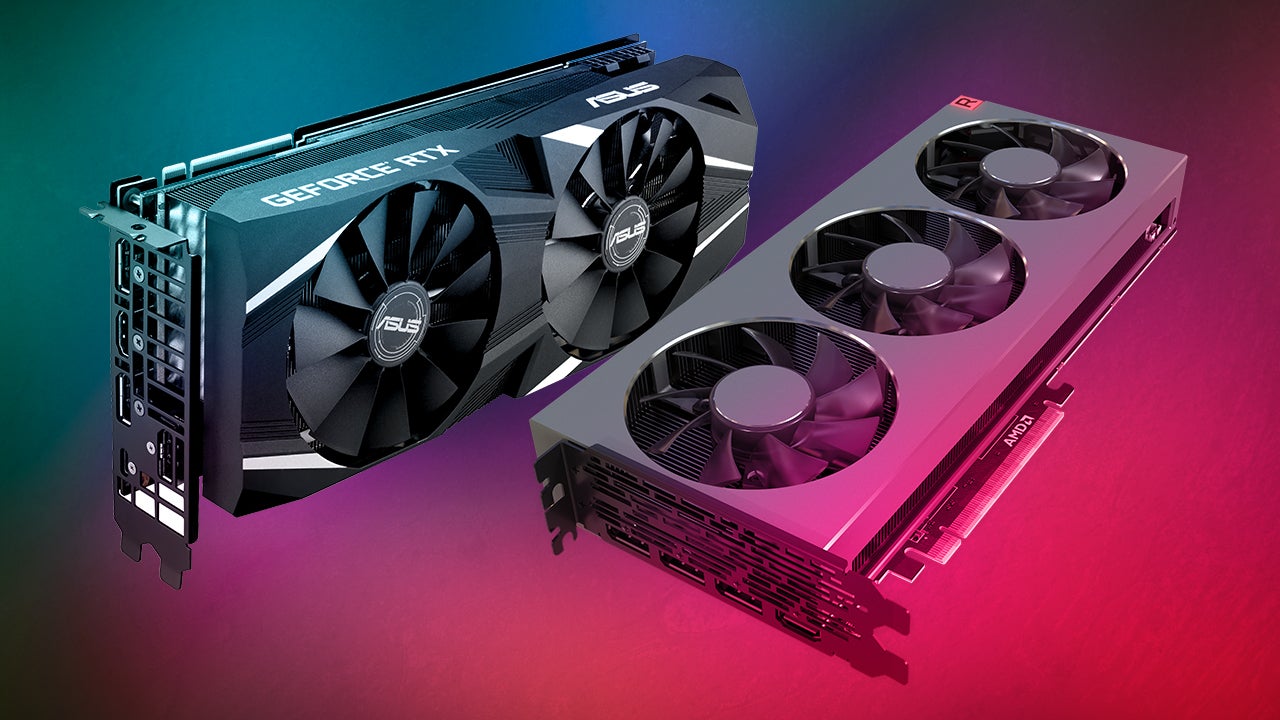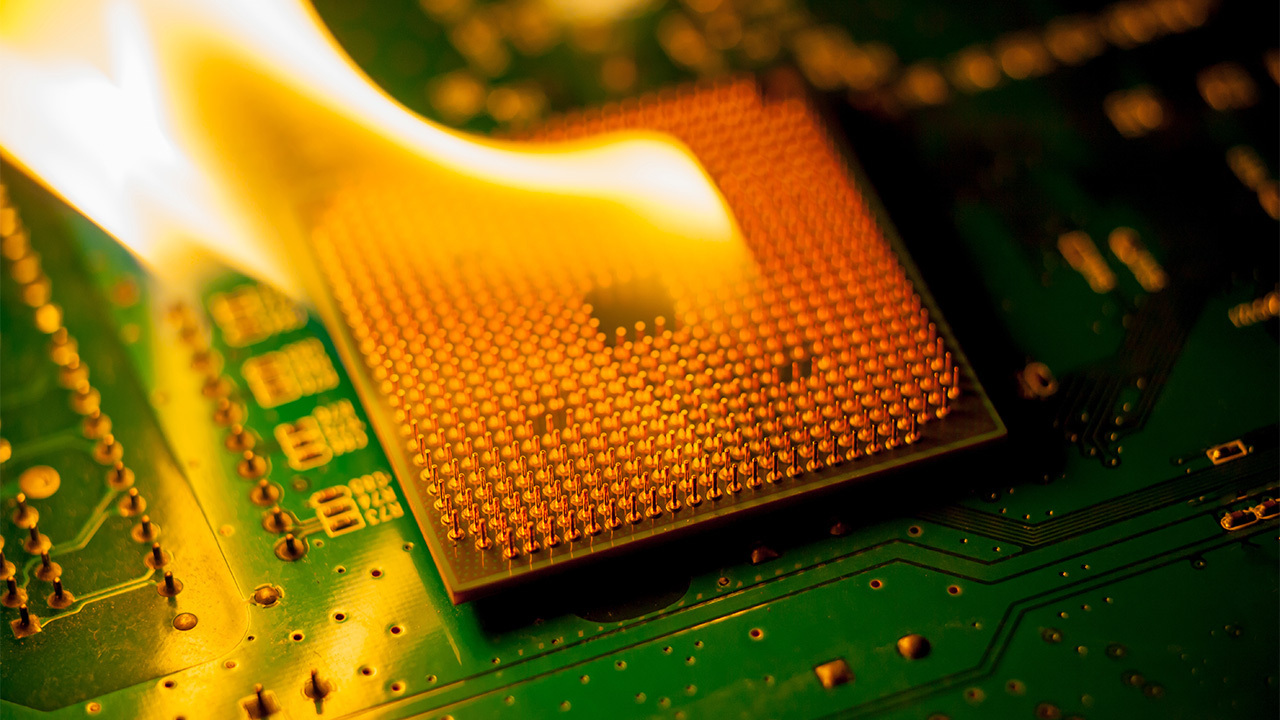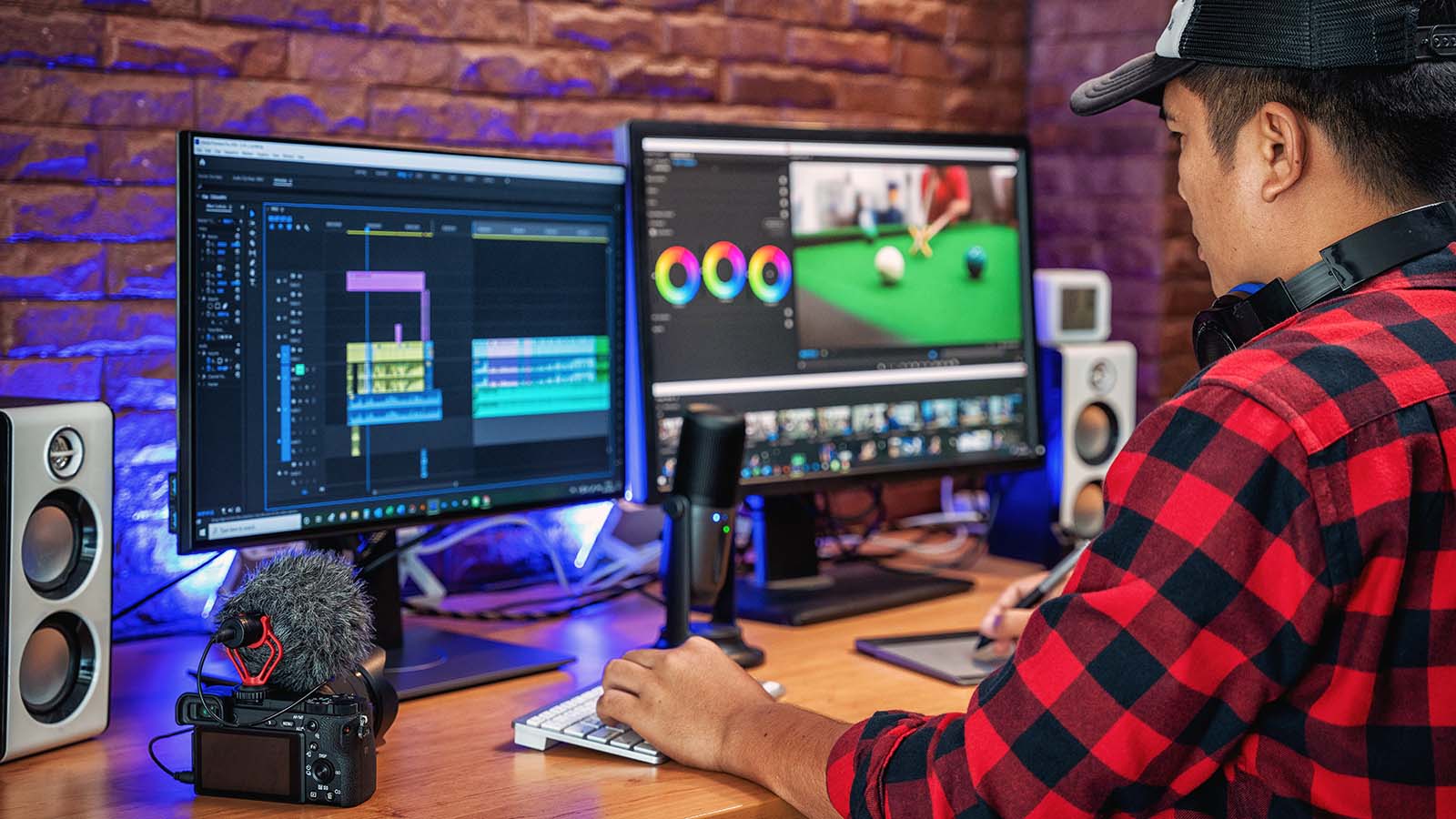Introduction
Choosing the right gaming GPU is a crucial decision for any avid gamer. Graphics Processing Units, or GPUs, play a pivotal role in delivering stunning visuals and smooth gameplay experiences. Whether you’re a casual gamer or a hardcore enthusiast, a good GPU can make all the difference in the quality and performance of your gaming sessions.
With the constant advancements in graphics technology, the market is flooded with a wide range of gaming GPUs, each promising outstanding results. However, with so many options to choose from, finding the perfect GPU can be overwhelming. That’s why it’s important to have a solid understanding of what makes a good gaming GPU and how to choose one that suits your gaming needs.
In this article, we will delve into the world of gaming GPUs, exploring their importance, factors to consider when choosing one, popular options available in the market, and tips for making the right purchase. Whether you’re looking to upgrade your current GPU or building a new gaming rig from scratch, this guide will equip you with the knowledge you need to make an informed decision.
So, if you’re ready to take your gaming experience to new heights, let’s dive into the fascinating realm of gaming GPUs and discover the key factors to consider when choosing the right one!
What is a GPU?
A GPU, or Graphics Processing Unit, is a specialized electronic circuit that is designed to accelerate the rendering of computer graphics and images. It is an essential component of any gaming system, responsible for processing and generating images, animations, and visual effects in real-time.
While a Central Processing Unit (CPU) handles general-purpose tasks and calculations, a GPU focuses specifically on graphics-related operations. GPUs are highly parallel in nature, meaning they can perform multiple complex calculations simultaneously. This parallel processing capability allows GPUs to handle the massive amounts of data required for rendering detailed and realistic graphics in video games.
Originally, GPUs were primarily used in industrial and scientific applications. However, their immense processing power and ability to handle complex mathematical operations quickly caught the attention of the gaming industry. Today, modern GPUs are designed specifically for gaming, offering exceptional performance and visual fidelity.
The GPU works in conjunction with the CPU to create a seamless gaming experience. The CPU sends instructions to the GPU, which then processes the data and renders it into visual output. This collaborative effort between the CPU and GPU ensures smooth gameplay, high frame rates, and impressive graphics quality.
Over the years, GPUs have evolved significantly, becoming more powerful and efficient. Manufacturers such as NVIDIA and AMD continuously push the boundaries of GPU technology, introducing new features and advancements with each generation. These advancements include improved memory bandwidth, higher core counts, and specialized features like ray tracing and deep learning capabilities.
In summary, a GPU is a critical component in a gaming system that handles the rendering of graphics and images. Its parallel processing power and specialized architecture enable it to deliver stunning visuals and immersive gaming experiences. Understanding the role and capabilities of a GPU is essential when choosing the right gaming GPU for your needs.
Why is a good GPU important for gaming?
A good GPU is an essential component for optimal gaming performance and visual quality. Here are several reasons why a powerful GPU is crucial for an immersive gaming experience:
1. Enhanced Visuals: A good GPU is responsible for rendering lifelike graphics, realistic textures, and detailed environments in games. It ensures that every frame is displayed smoothly, eliminating lag and stuttering, and allowing you to appreciate the intricate details of the game world.
2. High Frame Rates: Frame rate refers to the number of frames or images displayed per second in a game. A good GPU can handle complex calculations and graphics processing quickly, resulting in higher frame rates. Higher frame rates not only offer a smoother gameplay experience but also reduce input lag and improve responsiveness.
3. Increased Resolution: Gaming resolutions have come a long way, with 1080p Full HD, 1440p Quad HD, and 4K Ultra HD now being common options. A good GPU can handle higher resolutions effortlessly, enabling you to play games at higher resolutions without sacrificing performance.
4. Support for Advanced Technologies: Advanced technologies, such as ray tracing and deep learning-based supersampling, have revolutionized the gaming industry. These technologies require significant GPU power to render realistic lighting effects, reflections, and shadows. A high-end GPU is necessary to fully utilize these cutting-edge features and enjoy games as they were intended.
5. Compatibility with Virtual Reality (VR): Virtual Reality gaming has gained popularity in recent years, providing truly immersive experiences. VR games demand high-performance GPUs to render the dual screens required for stereoscopic 3D. A good GPU ensures smooth gameplay in Virtual Reality and prevents motion sickness or discomfort.
6. Futureproofing: Gaming technology is continually advancing, with developers pushing the boundaries of graphics and realism. A good GPU with ample power and up-to-date features allows you to enjoy the latest games at their highest settings and ensures compatibility with future game releases.
In summary, a good GPU is important for gaming due to the enhanced visuals, high frame rates, increased resolution support, compatibility with advanced technologies, VR capabilities, and futureproofing it offers. Investing in a quality GPU will elevate your gaming experience, allowing you to immerse yourself in beautifully rendered worlds and enjoy smooth, responsive gameplay.
Factors to consider when choosing a gaming GPU
Choosing the right gaming GPU requires careful consideration of several key factors. Here are the most important factors to keep in mind:
1. Performance: The performance of a GPU is crucial for smooth gameplay and high frame rates. Look for GPUs with higher core counts and clock speeds, as well as ample VRAM (Video RAM) capacity. Always check benchmark tests and reviews to gauge a GPU’s performance in real-world scenarios.
2. Compatibility: Ensure that the GPU you choose is compatible with your gaming system. Check the GPU’s power requirements, physical dimensions, and compatibility with your motherboard and power supply. Additionally, make sure your system has sufficient cooling to handle the heat generated by the GPU.
3. Budget: Set a budget for your GPU purchase. Gaming GPUs range in price from budget-friendly options to high-end models with a higher price tag. Determine how much you’re willing to spend and balance it with the level of performance you desire.
4. Gaming Resolution and Settings: Consider the resolution at which you plan to game. Higher resolutions like 1440p or 4K require more GPU power to maintain smooth frame rates. Additionally, decide on the graphics settings you prefer; if you want to play games at their highest settings, you’ll need a more powerful GPU.
5. Futureproofing: Consider the longevity of the GPU. Look for GPUs that have the latest technology and features, as they will likely support upcoming games and advancements. It’s beneficial to futureproof your gaming system by investing in a GPU that will remain relevant for several years.
6. Cooling: Pay attention to the cooling options on the GPU. A well-cooled GPU ensures better stability and lowers the risk of overheating, which can affect performance. Look for GPUs with effective cooling solutions such as dual or triple fans, heat pipes, or liquid cooling.
7. Brand and Support: Consider the reputation and customer support offered by GPU manufacturers. Established brands like NVIDIA and AMD often provide better driver support, software updates, and warranty coverage.
8. Power Consumption: Check the power requirements of the GPU and ensure that your power supply can handle it. Higher-end GPUs tend to have higher power requirements, so ensure your system has adequate power capacity to avoid stability issues.
By carefully considering these factors, you can make an educated decision and choose a gaming GPU that meets your performance needs, budget, and future gaming aspirations.
Understanding GPU Specifications
To choose the right gaming GPU, it is essential to understand the various specifications associated with GPUs. Here are the key specifications to consider:
1. Core Count: The core count refers to the number of processing cores or units in the GPU. A higher core count generally results in better performance and faster processing of graphics.
2. Clock Speed: The clock speed represents how fast the GPU can process data. It is measured in MHz (Megahertz) or GHz (Gigahertz). A higher clock speed indicates faster data processing, resulting in improved performance.
3. VRAM (Video RAM): VRAM is dedicated memory for storing and rendering graphics data. GPUs with more VRAM have a larger buffer, allowing for smoother and more detailed graphics. Consider the VRAM capacity, especially if you plan to play games at higher resolutions or with high-quality textures.
4. Memory Bus Width: The memory bus width determines the speed at which data travels between the GPU and the VRAM. A wider memory bus allows for faster data transfer, resulting in improved performance.
5. TDP (Thermal Design Power): TDP represents the maximum amount of power that the GPU can consume and the heat it generates. GPUs with higher TDP values generally require more power and tend to run hotter. It’s essential to ensure that your power supply and cooling system can handle the TDP of the GPU.
6. Architecture: GPU architecture refers to the underlying design and technology used in creating the GPU. Different architectures offer varying levels of performance, efficiency, and features. Stay informed about the latest GPU architectures to choose a GPU that aligns with your gaming requirements.
7. Outputs: Pay attention to the outputs available on the GPU. Ensure that it has the necessary ports, such as HDMI or DisplayPort, to connect to your display devices, including monitors or VR headsets.
While these specifications are crucial, it’s important to note that they should be considered in conjunction with real-world performance benchmarks and reviews. Actual gaming performance is influenced by various factors, and thorough research is necessary to make an informed decision.
Understanding GPU specifications empowers you to compare different models and identify the GPU that best suits your gaming needs. By considering core count, clock speed, VRAM, memory bus width, TDP, architecture, and outputs, you can make an educated choice and achieve the gaming experience you desire.
Popular gaming GPUs on the market
The gaming GPU market is flooded with options, but some models have gained popularity due to their impressive performance and features. Here are a few popular gaming GPUs that are highly regarded by gamers:
1. NVIDIA GeForce RTX 30 Series: The NVIDIA GeForce RTX 30 Series, including models like the RTX 3080 and RTX 3070, has taken the gaming world by storm. These GPUs feature ray tracing technology, DLSS (Deep Learning Super Sampling), and impressive performance improvements over the previous generation. The RTX 30 Series delivers excellent 4K gaming performance and supports advanced features for a truly immersive experience.
2. AMD Radeon RX 6000 Series: The AMD Radeon RX 6000 series, including models like the RX 6900 XT and RX 6800 XT, offers competitive performance and value. These GPUs feature AMD’s RDNA 2 architecture, ray tracing capabilities, and high VRAM capacity. The RX 6000 series is an excellent choice for gamers looking for top-tier performance in both 1440p and 4K resolutions.
3. NVIDIA GeForce RTX 20 Series: The NVIDIA GeForce RTX 20 series, including models like the RTX 2080 Ti and RTX 2070 Super, still holds its ground as a popular choice among gamers. These GPUs introduced real-time ray tracing technology, offering enhanced lighting and shadow effects. The RTX 20 series delivers outstanding performance for 1440p gaming and provides a smooth gaming experience.
4. AMD Radeon RX 5000 Series: The AMD Radeon RX 5000 series, including models like the RX 5700 XT and RX 5600 XT, offers solid performance at a more affordable price point. These GPUs provide excellent 1080p and 1440p gaming experiences and support AMD’s Radeon Software, which offers additional features and customization options.
5. NVIDIA GeForce GTX 1660 Super: The NVIDIA GeForce GTX 1660 Super is a budget-friendly option that offers impressive 1080p gaming performance. It provides smooth gameplay in popular titles and supports NVIDIA’s technologies like G-Sync and GeForce Experience.
These are just a few examples of popular gaming GPUs available on the market. It’s important to research and compare the specifications, performance, and prices of different models to determine which GPU best suits your specific gaming needs and budget. Additionally, stay updated with the latest releases and advancements in GPU technology to make an informed decision.
How to determine the right GPU for your gaming needs
Choosing the right GPU for your gaming needs can be a daunting task, given the abundance of options available. Here are some steps to help you determine the right GPU for your gaming requirements:
1. Identify your gaming goals: Consider the games you play or plan to play and determine the level of performance and graphical fidelity you desire. Are you aiming for smooth 1080p gaming, or do you want to push the limits with 4K gaming and ray tracing? Understanding your goals will guide your GPU selection process.
2. Set your budget: Determine how much you are willing to spend on a GPU. GPUs range in price from budget-friendly options to high-end models. Setting a budget will help you narrow down your options and find the best GPU within your price range.
3. Research, benchmarks, and reviews: Look for benchmarks and reviews from reputable sources for the GPUs you are considering. These resources provide real-world performance comparisons across various games and resolutions, giving you an objective basis for comparison.
4. Consider the requirements of your display device: Take into account the specifications of your monitor or display device. If you have a high refresh rate monitor (e.g., 144Hz or 240Hz), you’ll need a GPU capable of delivering high frame rates to fully utilize the monitor’s capabilities.
5. Assess compatibility: Ensure that the GPU you choose is compatible with your gaming system. Check factors such as power requirements, physical dimensions, and compatibility with your motherboard and power supply. Also, consider your system’s cooling capabilities to handle the GPU’s heat output.
6. Futureproofing: Consider future game releases and technological advancements when selecting a GPU. Opt for a GPU with the latest technology and features that will remain relevant for several years, ensuring that your gaming system can handle upcoming games and advancements.
7. Seek recommendations and advice: Consult online gaming communities, forums, and knowledgeable friends to gather insights and recommendations about different GPU models. Their experiences and perspectives can provide valuable information to help you make an informed decision.
8. Compare the performance-to-price ratio: Evaluate the performance of different GPUs relative to their price tags. It’s important to strike a balance between performance and value for money.
By following these steps and considering your gaming goals, budget, display device requirements, compatibility, futureproofing, and advice from experts, you can determine the right GPU that will provide the best gaming experience for your needs.
Tips for buying a gaming GPU
When buying a gaming GPU, it’s essential to consider various factors to make an informed decision. Here are some tips to help you navigate the process:
1. Do thorough research: Take the time to research different GPU models, their specifications, and their performance in real-world scenarios. Look for benchmark tests and reviews to gauge their capabilities. This research will ensure that you choose a GPU that aligns with your gaming goals and budget.
2. Consider your budget: Determine how much you are willing to spend on a GPU and stick to your budget. While high-end GPUs offer exceptional performance, more affordable options can still provide an enjoyable gaming experience.
3. Prioritize performance over brand loyalty: Don’t let brand loyalty blind you to the performance and value offered by other GPU manufacturers. Instead, focus on the performance-to-price ratio, choosing a GPU that offers the best bang for your buck.
4. Check for warranty and customer support: Look for GPUs with a solid warranty and reliable customer support. Gaming hardware can occasionally experience issues, so having manufacturer support in case of any problems can be beneficial.
5. Consider your power supply: Ensure that your power supply can provide sufficient power to the GPU you choose. High-end GPUs often require more power, so make sure your power supply can handle the load to avoid stability issues.
6. Account for future needs: Think about your future gaming needs and consider whether the GPU you choose will be able to handle upcoming game releases or new technology advancements. Investing in a more powerful GPU now can help futureproof your gaming system.
7. Evaluate cooling options: GPUs generate heat during intensive gaming sessions, so assess the cooling options of the GPU you’re interested in. Look for models with efficient cooling solutions like multiple fans or advanced cooling systems to ensure that your GPU stays cool and performs optimally.
8. Read user reviews and experiences: Seek out user reviews and experiences to gain firsthand insights into the GPU models you are interested in. Reading about other users’ experiences can help you understand potential issues or benefits that may not be apparent from technical specifications alone.
9. Consider aesthetic preferences: If the appearance of your gaming setup is important to you, consider the aesthetics of the GPU. Some models come with customizable RGB lighting or unique designs that can enhance the visual appeal of your gaming rig.
10. Buy from reputable sources: Purchase your GPU from reputable sellers to ensure authenticity and reliability. Stick to authorized retailers or online platforms with good customer feedback to avoid counterfeit or defective products.
By following these tips, you can make an informed decision when buying a gaming GPU that meets your performance requirements, budget, and preferences. Take your time, compare options, and choose a GPU that will take your gaming experience to new heights.
Conclusion
Selecting the right gaming GPU is a vital decision that can significantly impact your gaming experience. By considering factors such as performance, compatibility, budget, and futureproofing, you can make an informed choice that meets your specific gaming needs.
Understanding GPU specifications and researching popular models allows you to compare different options and determine which GPU aligns with your gaming goals. Consider your display device requirements, cooling capabilities, and seek recommendations from gaming communities to gather insights and make an educated decision.
Remember to stay within your budget and prioritize performance over brand loyalty. Additionally, consider factors like warranty, customer support, power supply compatibility, and cooling solutions when choosing a GPU.
With the right gaming GPU, you can enjoy enhanced visuals, high frame rates, and seamless gameplay. Whether you opt for the latest generation of GPUs from NVIDIA or AMD, or choose a more budget-friendly option, the key is to find a GPU that provides the best performance and value for your gaming setup.
So, arm yourself with knowledge, do thorough research, and follow the tips outlined in this guide. With careful consideration and smart decision-making, you’ll be well on your way to finding the perfect gaming GPU that will ignite your gaming passion and take your gaming experience to new heights.

























